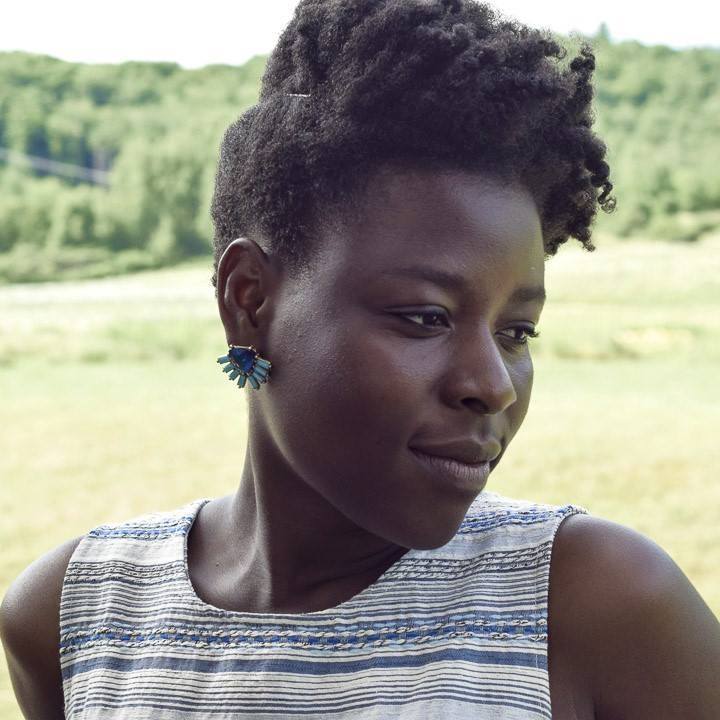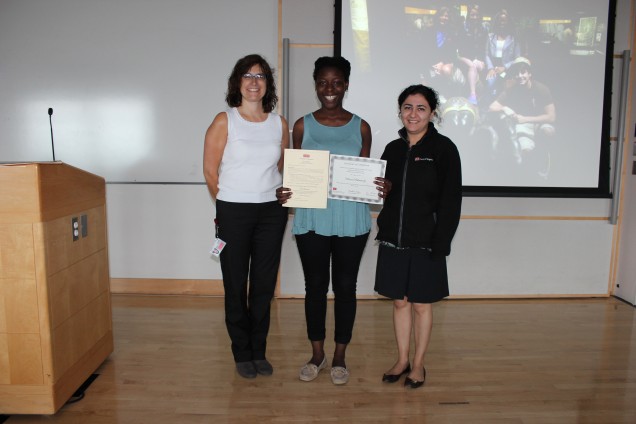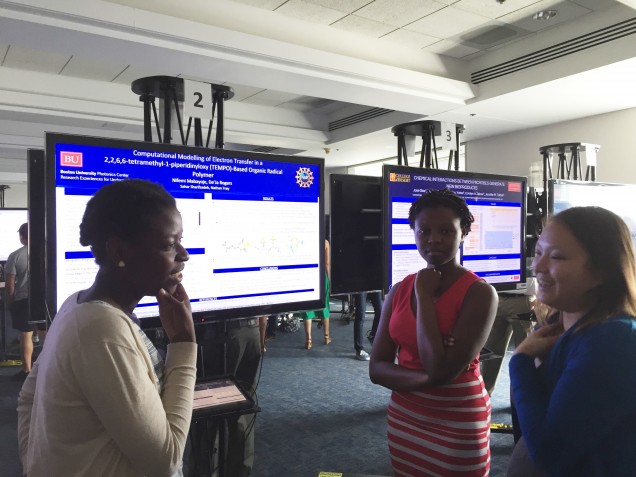Summer Research Experience, Nifemi Mabayoje 2016
I came into the Sharifzadeh group this summer somewhat disappointed at the project I had been assigned and unsure if I could gain anything from this experience. I had no prior experience with theoretical and computational research and I wasn’t sure that I would be able to successfully learn anything from this experience. I am happy to report that I was very wrong in my first impression.
I am a high school physics and chemistry teacher here in Boston. I chose to participate in a Research Experience for Teachers (RET) this summer because I believe that in order to be a good teacher of science, I need to continually seek out opportunities to grow as a learner and doer of science. This was my objective this summer and with the help of Professor Sharifzadeh, Nathan, our grad student mentor, and De’Ja, the Research Experience for Undergraduates (REU) student I worked closely with, I was able to achieve this objective.
On my first day in the lab, I met Nathan and De’Ja and was immediately struck by how patient Nathan was in walking me through the foundations of the project and the larger body of research that takes place in this lab. I spent my first week taking the course “From Atoms to Materials”, on nanohub.org, running the free simulations available on NanoHub, and getting acquainted with the project by working with De’Ja to understand the work she had been doing for the four weeks prior to my arrival. During that week, I also read some journal articles published about a research project similar to what we were doing. I began to finally understand the purpose and trajectory of the research after debriefing the article with Nathan and De’Ja.
By the beginning of week two, I felt more hopeful and ready to start working on the project, but we ran into some problems with our original plan of using the free tools available on NanoHub to run our simulations. When we spoke with Nathan about that, he informed us that the option that was most likely to work would be learning some programing language so that we could get on Boston University’s Shared Computing Cluster and use the tools there. As a complete novice to the world of theory and simulations, I had very little faith in this plan. Nathan patiently led us through the process of getting onto the cluster, learning the language necessary to run the simulations and collect data.
During the third week as we began the process of working on the cluster, I felt very supported by everyone in the lab who freely and joyfully made themselves available to us to show us the ropes and answer our endless troubleshooting questions. I remember feeling so relieved and exhilarated when we got our first set of results. It was then that I finally began to believe that we could successfully contribute to the project set before us this summer.
Throughout the summer, what stuck with me the most is the level of commitment to helping us succeed that Professor Sharifzadeh and Nathan have displayed. We met weekly with Professor Sharifzadeh, and almost daily with Nathan. And during those meetings, they pushed us to think deeply, work hard and stick to the project even when it was difficult. They helped us understand the data we had collected, troubleshoot the problems we were having, and determine the next steps in the project. I also perceived this same level of commitment and openness from the other members of the lab during group meetings where I felt comfortable asking for help and contributing my ideas because everyone was accessible and welcoming in a way that supported my learning.
As a student of science, I have been challenged and supported this summer in my learning and understanding of science. As a teacher of science, I have been inspired by the support I received to reflect on my own teaching practice. As I leave this lab, I am taking to my classroom a deeper understanding of how to support my students as they learn concepts that are unfamiliar and appear to be intimidating. The culture of openness and supportiveness that I have experienced in this lab this summer is what I hope to bring back into my classroom as I help train the next generation of scientists and researchers.



